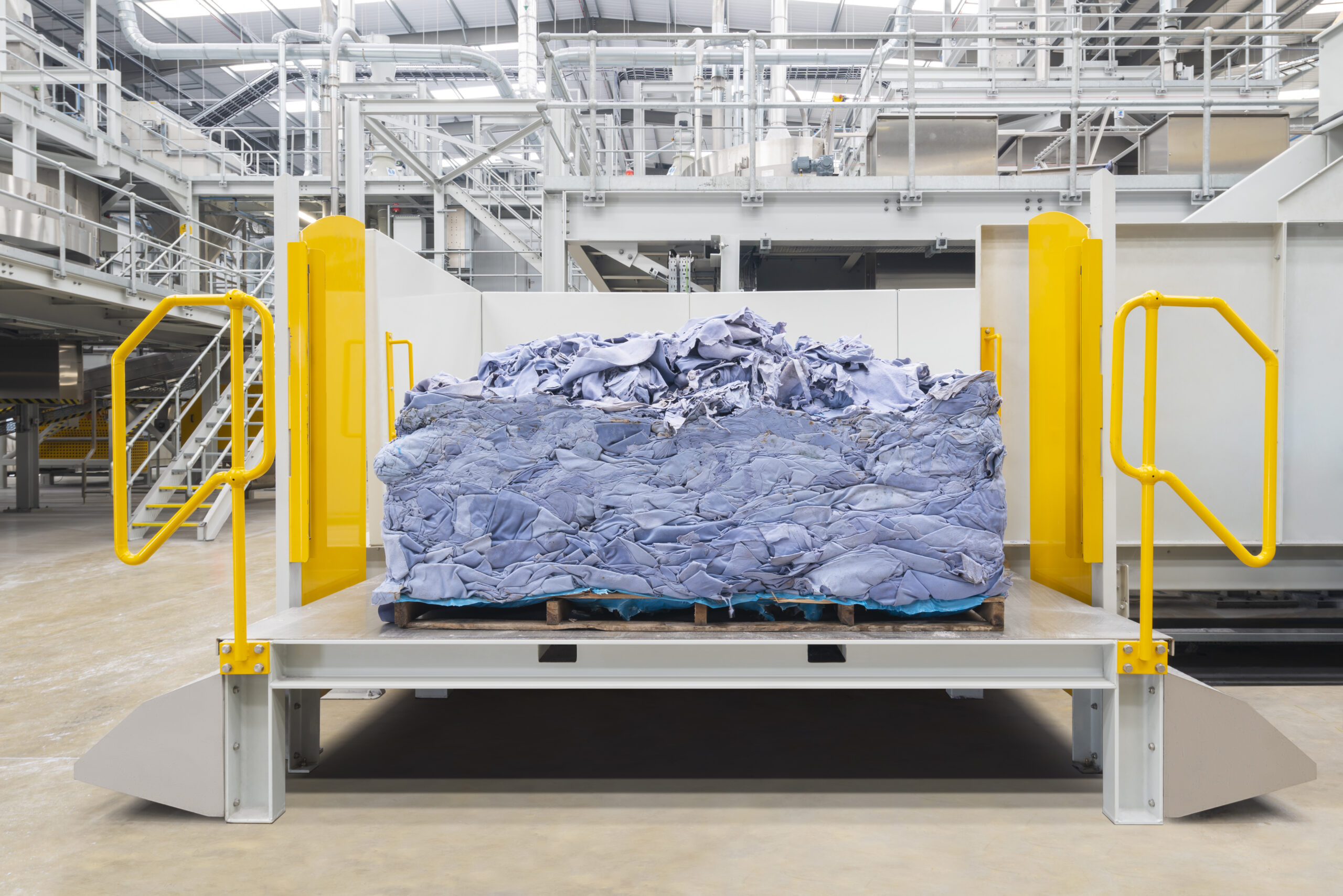
After collaborations with Coach and Dr. Martens, the recycled materials company hopes it can become a larger part of fashion brands’ materials.
Gen Phoenix’s technology deconstructs leather waste into new leather fibers to form a raw material. The company markets its material as having similar characteristics to traditional leather, but with an 85% lower carbon footprint. Courtesy of Gen Phoenix
Recycled leather company Gen Phoenix isn’t chasing a marketing claim.
“Recycled leather” is a broad term, and as a category, it isn’t well defined, even though it is advancing quickly, according to John Kennedy, Gen Phoenix’s CEO.
“But there’s an underlying piece around this, which is around authenticity, and the genuineness around the environmental story, and this is the evolving piece within the recycled leather space,” Kennedy said.
Gen Phoenix’s technology deconstructs leather waste into new leather fibers to form a raw material. The company markets its material as having similar characteristics to traditional leather, but with an 85% lower carbon footprint and availability at scale. The company also aims for the material to cost no more than traditional leather, so the product is what it calls “price neutral” to the consumer and protects the margins of its brand partners.

When considering recycled leather, Kennedy said there are two different approaches. He said some companies are making a product labeled as “recycled” for a marketing purpose, though he didn’t name specific companies. Other companies, he said, make recycled leather for an environmental and functional purpose. The latter is the space Gen Phoenix wants to work in.
One of the company’s internal sayings is “every fiber has a function,” so it operates on the thought that every piece of each material used is deliberate, and contributes to either the performance or aesthetic of the material.
Gen Phoenix initially debuted its material in the mass transportation seating category, making leather for aviation, rail and bus seats. In recent years, it has expanded its focus to take on the world of fashion.
This work is different, Kennedy said, because in fashion, leather is more about haptics, feel and luxury.
The company worked with Tapestry-owned Coach last year on the launch of its sub-brand Coachtopia, which includes products made from recycled leather. Then in March, Dr. Martens unveiled a line of boots made with Gen Phoenix’s material, called Genix Nappa. Beyond the capsule, Dr. Martens is incorporating Gen Phoenix’s material into future collections, according to Gen Phoenix.
“The brands that we talk to and we partner with, they value the authenticity and the reputation and credibility that we have,” Kennedy said.
Editor’s note: This conversation has been edited for brevity and clarity.
FASHION DIVE: What are some characteristics you look for in a fashion brand partner?
JOHN KENNEDY: It actually comes down to a shared purpose and really having genuine, aligned values around what you’re trying to achieve.
Half of the solution is getting the material to perform and meet the needs of the brand to make sure that it works. But the other part is actually the change management piece, where your material is replacing a material that has been around for decades, if not centuries. A lot of the standards, the manufacturing processes, and how it’s designed is all based on how [traditional] leather performs today.
Particularly with the first application and the first season, there’s an awful lot of learning and change that goes on with the brand. To give credit to Dr. Martens, they’ve been fabulous at that. They’ve been fabulous partners. We work really closely with them. This level of openness and collaboration is a really key ingredient.
What does Gen Phoenix want to accomplish in the near-term?
Scaling up as a business, and making sure that we continue to expand season on season with our brand partners. Expanding into more brand partners, and into more markets, so that we can continue that journey of increasing our impact on society. As we go through those collaborations, we learn, and we iterate, and we get better. And it’s really integrating those learnings on that journey toward full circularity at scale.
What are you focusing on in the long term?
The product portfolio that we have today, and the technology that we have today, is a step in [the circularity at scale] journey. But ultimately, we’re working on solutions that will be able to bring end-of-life products back in to be re-lifed within our own process. Whether that’s leather waste that they’re using today in a shoe or something, or even our own material that comes back again. That’s really our North Star, and our vision about where we’re trying to get to, whilst maintaining the price, performance, planet [mindset]. Having those two things together, we think, is really what unlocks for us an amazing business, but more importantly, an amazing impact.
What is a common misconception of the work you do?
A lot of alternative material suppliers or companies, the first thing they do is trash talk leather. [They say] “Leather is no good, and it’s bad for the planet.” And, you know, “cows are bad” and everything else. That’s not where we are. Genuinely, I think leather is a sustainable material in terms of, it’s a byproduct from the meat industry. We’re not anti-leather. Our philosophy is, “how do we keep waste out of the ground?”
We would love to work more closely with the leather industry, about how we jointly solve [these problems] and work together to have a genuine, authentic recycling leather product that goes alongside the virgin leather that’s coming out from the tanneries as well. I think there’s an opportunity there that is missing. It’s incumbent upon us and our friends and colleagues in the leather space about how we can get close and work together on this. We’re friends of leather, we think it’s a great material. We just want to keep it in service for longer and keep it out of the ground.



